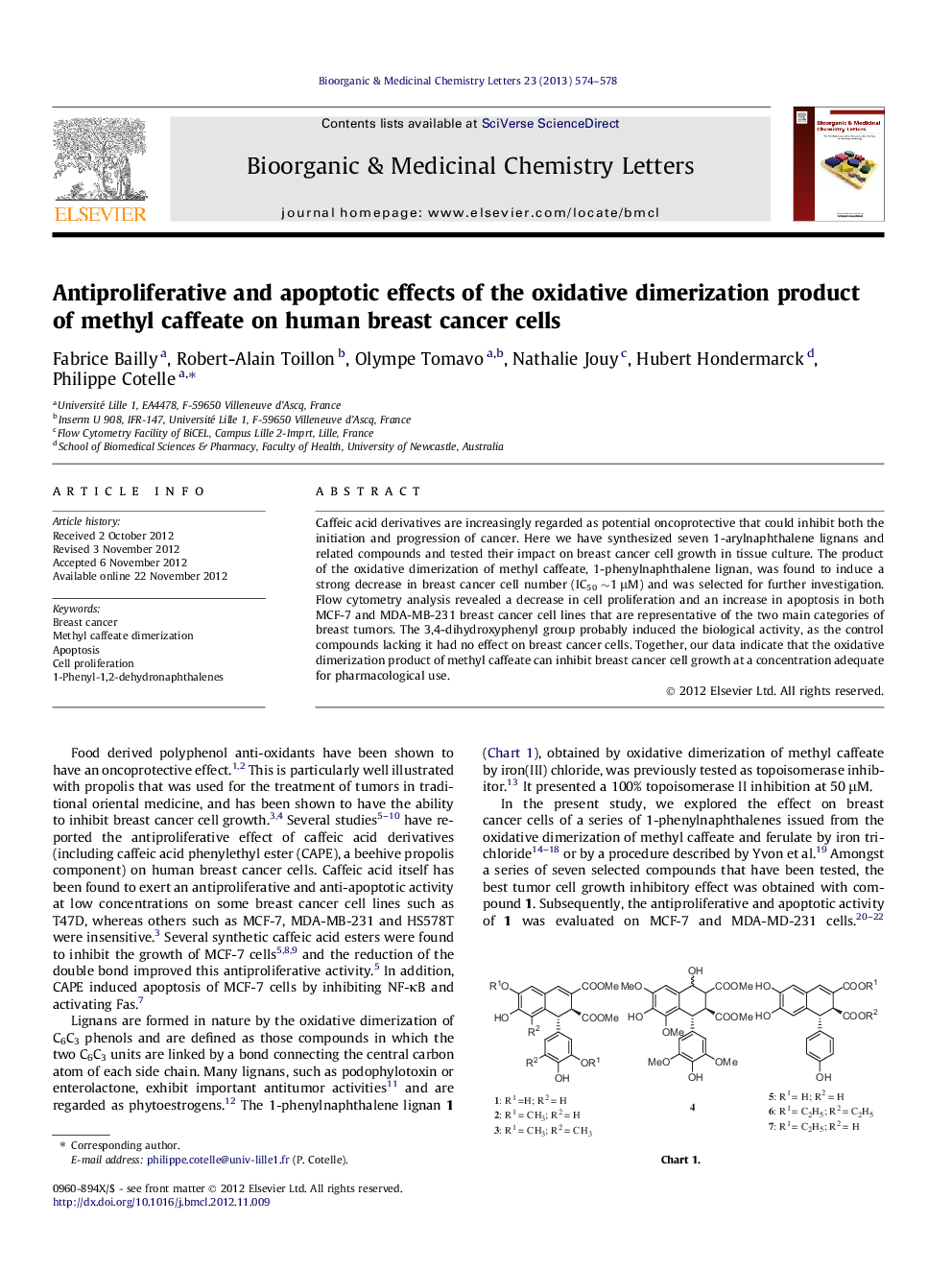| Article ID | Journal | Published Year | Pages | File Type |
|---|---|---|---|---|
| 10596092 | Bioorganic & Medicinal Chemistry Letters | 2013 | 5 Pages |
Abstract
Caffeic acid derivatives are increasingly regarded as potential oncoprotective that could inhibit both the initiation and progression of cancer. Here we have synthesized seven 1-arylnaphthalene lignans and related compounds and tested their impact on breast cancer cell growth in tissue culture. The product of the oxidative dimerization of methyl caffeate, 1-phenylnaphthalene lignan, was found to induce a strong decrease in breast cancer cell number (IC50 â¼1 μM) and was selected for further investigation. Flow cytometry analysis revealed a decrease in cell proliferation and an increase in apoptosis in both MCF-7 and MDA-MB-231 breast cancer cell lines that are representative of the two main categories of breast tumors. The 3,4-dihydroxyphenyl group probably induced the biological activity, as the control compounds lacking it had no effect on breast cancer cells. Together, our data indicate that the oxidative dimerization product of methyl caffeate can inhibit breast cancer cell growth at a concentration adequate for pharmacological use.
Related Topics
Physical Sciences and Engineering
Chemistry
Organic Chemistry
Authors
Fabrice Bailly, Robert-Alain Toillon, Olympe Tomavo, Nathalie Jouy, Hubert Hondermarck, Philippe Cotelle,
